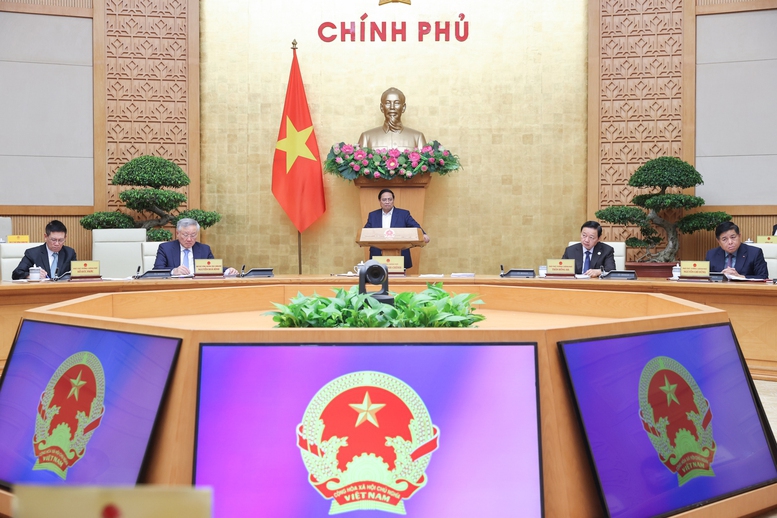
Prime Minister Pham Minh Chinh chairs the regular Government meeting in May 2025 - Photo: VGP/Nhat Bac
Resolution of the regular Government meeting in May 2025
The Government issued Resolution No. 162/NQ-CP at the regular Government meeting in May 2025, which includes many important contents such as: urgently implementing the arrangement of administrative units and organizing local governments at 2 levels, ensuring the progress of putting into operation the new commune level from July 1, 2025, the provincial level before August 15, 2025; a credit program of 500,000 billion VND for loans to invest in infrastructure, digital technology , and loans for people under 35 years old to buy social housing.
The Government and the Prime Minister request Ministers, Heads of ministerial-level agencies, Government agencies, Chairmen of People's Committees of provinces and centrally run cities to thoroughly grasp and seriously and effectively implement the Resolutions and Conclusions of the Central Committee, the Politburo, the Secretariat, the National Assembly, the Government and the direction of the Prime Minister, especially Resolution No. 154/NQ-CP dated May 31, 2025 of the Government; grasp the situation, proactively handle arising issues within their authority; have high determination, great efforts, drastic actions, timely, effectively and smoothly implement assigned tasks, strive to achieve the highest results for the second quarter growth targets and indicators, contributing to the successful implementation of the socio-economic development plan tasks in 2025, especially the growth target of 8% or more; in which, focusing on the following contents:
Effectively organize and implement the Politburo's Resolutions on: science and technology, innovation, national digital transformation; international integration; law making and enforcement; private economic development
Ministries, agencies and localities, according to their assigned functions, tasks and powers, shall proactively and actively implement Resolution No. 57-NQ/TW dated December 22, 2024 of the Politburo on breakthroughs in science and technology development, innovation and digital transformation and the tasks assigned by the Government in Resolution No. 71/NQ-CP dated April 1, 2025.
Urgently develop and promulgate in June 2025 a plan to implement Resolution No. 138/NQ-CP dated May 16, 2025 of the Government on the Government's Action Plan to implement Resolution No. 68-NQ/TW dated May 4, 2025 of the Politburo on private economic development on the basis of reviewing programs and plans to implement Party resolutions and Government Action Plans related to private economic development for synchronous and unified adjustments.
The Ministry of Justice shall preside over and coordinate with agencies and localities to urgently submit to the Government for promulgation a document guiding the implementation of Resolution No. 197/2025/QH15 on a number of special mechanisms and policies to create breakthroughs in law making and enforcement.
Prioritize promoting growth associated with maintaining macroeconomic stability, controlling inflation, ensuring major balances, enhancing the autonomy, adaptability and competitiveness of the economy.
Ministries, agencies and localities, according to their assigned functions, tasks and powers, must strengthen financial and budgetary discipline and order; thoroughly save regular expenditures.
The Ministry of Finance strengthens the management of state budget collection, continues to expand the collection base, especially revenue from e-commerce and food services; completes digitization and deploys electronic invoices generated from cash registers in June 2025.
The State Bank of Vietnam shall preside over and coordinate with agencies and localities to proactively, flexibly, promptly and effectively manage monetary policies; operate exchange rates and interest rates synchronously and harmoniously, in line with domestic and international market developments; stabilize the monetary and foreign exchange markets; and direct credit institutions to resolutely implement solutions to reduce lending interest rates in accordance with the Prime Minister's direction.
The Ministries of Industry and Trade, Health, Finance, Agriculture and Environment, ministries and specialized management agencies, according to their assigned functions, tasks and authorities, must thoroughly handle difficulties and problems regarding regulations and conditions for import and export according to the recommendations of enterprises and associations, especially enterprises in Vietnam's key export industries and sectors such as seafood, wooden furniture, electronic equipment, etc.
Actively, urgently, proactively, and focusing resources on perfecting institutions and laws associated with rearranging the apparatus, administrative units, and organization of two-level local governments, ensuring progress and requirements, and not allowing delays.
Ministries, agencies and localities, according to their assigned functions, tasks and powers, shall urgently complete and submit to the Government before June 13, 2025 for consideration and promulgation of 28 decrees on decentralization, delegation of authority and division of authority associated with the implementation of the 2-level local government organization model and promulgate circulars to decentralize the authority of the Minister to local governments, administrative procedure forms; update on the National Law Portal; organize nationwide training on the organization of the apparatus, operation of 2-level local governments, decentralization, delegation of authority and division of authority to guide agencies and localities.
Set up hotlines of ministries and agencies and notify localities and people to know and contact; promptly support, guide and answer questions and recommendations of organizations and individuals within their authority.
The Ministry of Finance shall preside over the statistical guidance, coordinate with agencies and localities to review all equipped headquarters and facilities; develop plans and implement the arrangement and harmonization of housing and land facilities to ensure that the headquarters are used effectively and for the right purposes, prioritize the arrangement and allocation for healthcare, education, and community culture, and have appropriate management and handling plans and plans according to regulations and instructions of the Prime Minister; promptly arrange funds to pay for regimes and policies for cadres, civil servants, public employees, and workers during the process of organizational arrangement.
The Ministry of Science and Technology synthesizes draft legal documents on decentralization, delegation of authority, and division of authority of ministries and ministerial-level agencies provided by ministries and ministerial-level agencies, builds data, and a virtual assistant system (AI) to serve the search and resolution of difficulties and problems regarding information and administrative procedures of people, officials, civil servants and localities when implementing the arrangement of administrative units at all levels, implementing the 2-level local government model, implementing decentralization, delegation of authority and division of authority; and provides instructions for trial use at the National Training Conference.
Resolutely implement solutions to accelerate disbursement of public investment capital, deploy 03 National Target Programs; speed up the construction progress of important, key, inter-provincial, inter-regional, national, regional and international projects and works.
Ministries, agencies and localities, according to their assigned functions, tasks and powers, continue to thoroughly grasp and strictly implement the direction of the Government and the Prime Minister in implementing national target programs; thoroughly handle difficulties and obstacles to speed up the implementation progress and disbursement of capital for the programs.
Ensure the progress of public investment capital disbursement of each project according to the monthly plan, especially key projects, identified as the growth drivers in 2025 of the whole country, regions and localities, in order to quickly bring capital into the economy and effectively exploit projects for growth. Regularly review and promptly transfer capital from slow-disbursing projects to projects with good disbursement and in need of additional capital according to regulations.
Promote the development of industrial, agricultural and service sectors and fields , enhance the competitiveness of Vietnamese goods; firmly ensure national energy and food security.
The State Bank of Vietnam presides over and coordinates with agencies and localities to implement the Loan Program for linking production, processing and consumption of high-quality and low-emission rice products in the Mekong Delta region according to Decision No. 1490/QD-TTg dated November 27, 2023 of the Prime Minister.
The Ministry of Agriculture and Environment shall preside over and coordinate with agencies and localities to effectively implement solutions to ensure national food security, promote the export of agricultural products, food, and appropriate and effective rice reserves in current conditions; promote the implementation of the Project on Sustainable Development of One Million Hectares of High-Quality and Low-Emission Rice Cultivation Associated with Green Growth in the Mekong Delta Region according to Decision No. 1490/QD-TTg dated November 27, 2023 of the Prime Minister.
Continue to diversify export markets, promote harmonious and sustainable trade relations; effectively exploit the domestic market ; resolutely prevent and combat smuggling, trade fraud, and counterfeit goods.
Ministries, agencies and localities, according to their assigned functions, tasks and powers, focus on resolutely implementing the tasks assigned by the Prime Minister to step up the fight to prevent and repel smuggling, trade fraud, counterfeit goods and intellectual property infringement nationwide (from May 15 to June 15, 2025); strictly handle violators as well as officials and civil servants with moral degradation, corruption, negativity, "protecting and assisting" violators according to the motto "handling one case, warning the whole region, the whole field", "no forbidden areas, no exceptions".
The Ministry of Finance, in accordance with its assigned functions, tasks and powers, shall promptly resolve arising problems and prioritize immediate customs clearance for exported agricultural, forestry and fishery products, especially agricultural products at the time of the main harvest.
Promoting the application of science and technology, innovation, national digital transformation, and training of high-quality human resources
Ministries, agencies and localities, according to their assigned functions, tasks and powers, promote the development of digital economy, green economy, circular economy, sharing economy, emerging industries and fields, and promote new business models: artificial intelligence, cloud computing, semiconductors, new energy, biomedicine, cultural industry, entertainment industry, etc.
The Ministries of Industry and Trade, Science and Technology, and Finance, according to their assigned functions, tasks, and powers, shall research and apply specialized legal frameworks for financial technology, artificial intelligence, e-commerce, and special economic zones; propose a controlled testing legal framework for new technology industries.
Focus on cultural and social fields, effectively and promptly implement social security policies, improve people's material and spiritual life and health .
Ministries, agencies and localities, according to their assigned functions, tasks and powers, shall fully, synchronously and effectively implement social security policies. Improve the material and spiritual life of the people. Continue to effectively implement the emulation movement "Join hands to eliminate temporary and dilapidated houses" nationwide in 2025.
The Ministry of Health shall preside over and coordinate with agencies and localities to strengthen solutions to improve the quality of medical services, people's satisfaction, and ensure security and safety at medical facilities. Promote the implementation of investment programs and projects for preventive medicine and grassroots health care.
The Ministry of Home Affairs shall preside over and coordinate with agencies and localities to closely monitor the situation of cadres, civil servants, public employees, and workers who request leave from work and coordinate with the Ministry of Finance to promptly resolve policies and regimes in the implementation of organizational restructuring according to regulations, promptly provide guidance to ensure the right subjects, purposes, and requirements, and retain competent and qualified cadres.
Strengthen information and policy communication, create social consensus; fight against wrong and hostile viewpoints, and misinformation orientation.
Ministries, agencies, localities, media agencies, and press, according to their assigned functions, tasks, and powers, should strengthen policy communication, especially documents of the Party and State, the rearrangement of administrative units, the 9th Session of the 15th National Assembly, and important events of the country, arouse patriotism, the desire to contribute, and commend and replicate initiatives, advanced examples, and effective practices in the direction and administration of sectors and levels, striving to exceed the goals, targets, and tasks set for 2025. Promptly refute erroneous and hostile viewpoints, correct false information, and guide public opinion.
Ensure progress in putting new commune-level operations into operation from July 1, 2025, and provincial-level before August 15, 2025
The Government assigns specific tasks to each ministry, agency, and locality. In particular, it requires the People's Committees of provinces and centrally run cities to preside over and coordinate with relevant ministries and agencies to urgently reorganize administrative units and organize local governments at two levels, ensuring the progress of putting the new commune level into operation from July 1, 2025, and the provincial level before August 15, 2025. Continue to do a good job of ideological work, proactively grasp public opinion, forecast risks, promptly identify and handle complicated issues that arise, ensure internal solidarity during the reorganization process, and the new apparatus operates smoothly, continuously, and effectively, without interruption of work, without leaving vacant areas or fields, without affecting the normal operations of agencies, organizations, enterprises, and people, especially in the fields of public investment, land, planning, construction, etc.
People's Committees of provinces and centrally run cities shall strengthen inspection and management of the market, prices of accommodation, food and beverage services, food hygiene and safety, especially in key tourist areas; and improve the quality of services for tourists.
Chairmen of People's Committees of localities with border gates, especially localities in the northern border area (Lang Son, Lao Cai, Quang Ninh, Cao Bang, Ha Giang, Dien Bien, Lai Chau) direct, organize monitoring, updating, evaluating, and forecasting the situation of circulation and concentration of goods in the area; regularly provide information on the situation of circulation and export of agricultural products at border gates so that localities, functional agencies and enterprises know; deploy solutions to ensure the circulation of goods, avoiding congestion at border gates.
Implement a credit program of about 500,000 billion VND for loans to invest in infrastructure, digital technology, and loans for people under 35 years old to buy social housing.
The Government assigned the State Bank of Vietnam to preside over and coordinate with agencies and localities to direct commercial banks to implement a credit program of about VND 500,000 billion for loans to invest in infrastructure, digital technology, and loans for people under 35 years old to buy social housing.
At the same time, the State Bank of Vietnam shall strengthen the management of the gold market, inspect, check, prevent and handle violations in gold production and trading in accordance with the law; submit to the Government in June 2025 a Decree amending and supplementing a number of articles of Decree No. 24/2012/ND-CP on the management of gold trading activities, without further delay.
Research on building a national agricultural products trading floor
The Ministry of Agriculture and Environment shall preside over and coordinate with agencies and localities to monitor developments in the world and regional markets to inform and guide businesses and farmers to proactively prepare to meet market conditions, take advantage of opportunities, boost exports, and open up markets for agricultural products; strengthen regulation and organize production according to planting area planning, improve the effectiveness of managing planting area codes; build and strictly and effectively manage planning areas for raw materials, geographical indications, and protect the brands of Vietnamese agricultural products.
Research and develop a national agricultural product trading floor, report to competent authorities in October 2025.
In addition, the Ministry of Agriculture and Environment shall preside over and coordinate with agencies and localities to review and assess the safety of irrigation works, dams, and reservoirs, promptly upgrade and repair degraded and damaged works, ensure safety, flood resistance, and flood discharge, and complete them before the rainy and flood season.
Impact assessment report on calculating management costs in medical examination and treatment service prices from July 1, 2025
The Ministry of Construction reviews, cuts, and drastically simplifies administrative procedures in the construction sector, including cutting down on construction permit procedures in areas with detailed 1/500 planning or approved urban designs, creating maximum convenience for people and businesses; closely coordinates with localities to focus on establishing and approving planning in areas without planning.
The Ministry of Health shall review and complete the impact assessment report on calculating management costs in the price of medical examination and treatment services from July 1, 2025, ensuring both the implementation of the goal of gradually calculating all costs in the price of medical examination and treatment services in accordance with the spirit of Resolution No. 19-NQ/TW dated October 25, 2017 of the 12th Party Central Committee, and the implementation of the goal of controlling inflation and stabilizing the macro economy in 2025.
The Ministry of Education and Training shall research and find appropriate and effective solutions to overcome the shortage of teachers, ensure 2 sessions of teaching per day, support lunch for students and other contents according to the direction of General Secretary To Lam in Official Dispatch No. 177-TB/VPTW dated April 25, 2025 of the Central Party Office; report to Deputy Prime Minister Le Thanh Long in June 2025.
Decentralization and delegation in the field of state management of the Ministry of Justice
The Government issued Decree 121/2025/ND-CP dated June 11, 2025, regulating decentralization and delegation in the field of state management of the Ministry of Justice.
This Decree stipulates the authority, order, procedures for performing tasks and powers of agencies and competent persons in the field of state management of the Ministry of Justice as prescribed in laws, resolutions of the National Assembly, ordinances, resolutions of the National Assembly Standing Committee, decrees of the Government, and decisions of the Prime Minister that need to be adjusted to implement decentralization and delegation.
The Decree clearly states the decentralization in the following areas: Property auction; commercial arbitration; lawyer management; notarization; state compensation; adoption, legal dissemination and education, and legal aid.
The Decree also specifically stipulates decentralization in the following areas: Bailiff; commercial arbitration; legal support for small and medium enterprises, and legal aid.
The Chairman of the Provincial People's Committee has the authority to grant, revoke, and re-grant Auction Practice Certificates and Lawyer Practice Certificates.
Regarding asset auctions, the Decree decentralizes the authority to grant, revoke, and reissue Auction Practice Certificates to the Chairman of the Provincial People's Committee. Specifically, the Chairman of the Provincial People's Committee grants Auction Practice Certificates as stipulated in Clause 2, Article 14 of the Law on Asset Auctions; revokes Auction Practice Certificates as stipulated in Points b and c, Clause 2, Article 16 of the Law on Asset Auctions; and reissues Auction Practice Certificates as stipulated in Article 17 of the Law on Asset Auctions.
In the field of lawyer management, the Decree stipulates that the Chairman of the Provincial People's Committee has the authority to: grant Lawyer Practice Certificates as prescribed in Clause 3, Article 17 of the Law on Lawyers; revoke Lawyer Practice Certificates as prescribed in Clause 2, Article 18 of the Law on Lawyers; and reissue Lawyer Practice Certificates as prescribed in Article 19 of the Law on Lawyers.
The revocation of a lawyer's practice certificate as prescribed in Clause 3, Article 85 of the Law on Lawyers is under the authority of the Chairman of the People's Committee of the province where the lawyer is a member of the Bar Association.
Notaries are appointed and dismissed by the Chairman of the Provincial People's Committee.
Decree 121/2025/ND-CP also stipulates that the Chairman of the Provincial People's Committee has the authority to: Appoint notaries as prescribed in Clause 1, Article 13 of the Notary Law, Article 4 of Decree No. 104/2025/ND-CP dated May 15, 2025 of the Government detailing a number of articles and measures to implement the Notary Law; dismiss notaries as prescribed in Article 16 of the Notary Law, Article 6 of Decree No. 104/2025/ND-CP; re-appoint notaries as prescribed in Clause 4, Article 17 of the Notary Law, Article 7 of Decree No. 104/2025/ND-CP.
The recognition of equivalence for those trained in notary profession abroad as prescribed in Clause 6, Article 11 of the Law on Notary is also under the authority of the Chairman of the Provincial People's Committee.
Legal support for small and medium enterprises
Regarding the establishment, management and use of the network of legal consultants, Decree 121/2025/ND-CP clearly states: The network of legal consultants is stipulated in Clause 3, Article 3, Article 9 of Decree No. 55/2019/ND-CP dated June 24, 2019 of the Government on legal support for small and medium-sized enterprises and is publicly announced by the Provincial People's Committee to provide legal support for small and medium-sized enterprises. The Provincial People's Committee is responsible for arranging and attracting resources to establish, manage and effectively use the network of legal consultants in the area; arranging funding and assigning focal points to receive and handle procedures to support legal consulting costs for small and medium-sized enterprises.
Small and medium-sized enterprises access the network of legal consultants through the list of legal consultants posted on the portal of the Provincial People's Committee and on the Enterprise Legal Support Information Website.
The provincial People's Committee shall prescribe the procedures for supporting legal consultancy costs. In case local budget sources can be arranged, the provincial People's Committee shall report to the People's Council at the same level for consideration and decision to apply a higher level of support for legal consultancy costs to encourage and attract legal consultants and provide maximum support for small and medium enterprises.
Decentralization of state management authority in the field of management and use of public assets
Decree 127/2025/ND-CP was recently issued by the Government on June 11, 2025, regulating the decentralization of state management authority in the field of management and use of public assets.
The Decree specifically stipulates the decentralization of state management in the management and use of public assets at agencies, organizations and units; management, use and exploitation of infrastructure assets (aviation, road traffic, markets, irrigation, inland waterways, railways, maritime, clean water supply); establishment of public ownership of assets and handling of assets for which public ownership has been established.
Management, use and handling of public assets at agencies, organizations and units
Decree 127/2025/ND-CP clearly states: The Chairman of the Provincial People's Committee decides to transfer public assets at agencies, organizations, and units under its management to ministries, central agencies, and to other localities as prescribed in Point a, Clause 1, Article 20 of Decree No. 151/2017/ND-CP dated December 26, 2017 of the Government detailing a number of articles of the Law on Management and Use of Public Assets, amended and supplemented by Decree No. 114/2024/ND-CP dated September 15, 2024 of the Government, Decree No. 50/2025/ND-CP dated February 28, 2025 of the Government.
The order and procedures for transferring public assets shall be implemented according to the provisions of Article 21 of Decree No. 151/2017/ND-CP; it is not necessary to report to the Minister of Finance for consideration and decision according to the provisions of Article 21 of Decree No. 151/2017/ND-CP.
Ministers, Heads of central agencies, and Provincial People's Committees shall promulgate a list of specific assets under their management that must purchase insurance for storm, flood, and inundation risks and a roadmap for implementation as prescribed in Clause 2, Article 135 of Decree No. 151/2017/ND-CP.
The Chairman of the Provincial People's Committee decides to transfer public assets at agencies, organizations and units under its management to the People's Armed Forces units as prescribed in Point b, Clause 2, Article 59 of Decree No. 151/2017/ND-CP. The order and procedures for transferring public assets shall comply with the provisions of Article 21 of Decree No. 151/2017/ND-CP; it is not necessary to report to the Minister of Finance for consideration and decision as prescribed in Article 21 of Decree No. 151/2017/ND-CP.
The Chairman of the Provincial People's Committee decides to approve the plan to transfer project assets under local management to other central or local agencies, organizations, units, and projects as prescribed in Point a, Clause 2, Article 92 of Decree No. 151/2017/ND-CP.
In this case, the order and procedures for approving the implementation plan shall comply with the provisions of Article 93 of Decree No. 151/2017/ND-CP; it is not necessary to request the agency assigned to perform the task of managing public assets as prescribed in Clause 1, Article 19 of the Law on Management and Use of Public Assets. The Minister of Finance shall consider and decide on the provisions of Point d, Point dd, Clause 1, Article 93 of Decree No. 151/2017/ND-CP.
Establishing public ownership of property
Also according to Decree 127/2025/ND-CP, the Chairman of the Provincial People's Committee decides to approve the handling plan in the form of transfer from the locality to the ministry, central agency or between localities for assets that are evidence and means of administrative violations confiscated as prescribed in Clause 1, Article 10 of Decree No. 77/2025/ND-CP dated April 1, 2025 of the Government stipulating the authority and procedures for establishing the entire people's ownership of assets and handling assets for which the entire people's ownership has been established.
The Chairman of the Provincial People's Committee decides to approve the handling plan in the form of transfer from the locality to the ministry, central agency or between localities for assets that are evidence of the case, assets of convicted persons that are confiscated as prescribed in Clause 1, Article 20 of Decree No. 77/2025/ND-CP.
The Chairman of the Provincial People's Committee decides to approve the handling plan in the form of transfer from the locality to the ministry, central agency or between localities for ownerless real estate, lost or abandoned property, and inheritance without heirs as prescribed in Clause 1, Article 31 of Decree No. 77/2025/ND-CP.
Ministers and heads of central agencies decide to approve the handling plan for assets whose owners voluntarily transfer ownership to the State of Vietnam through ministries and central agencies as prescribed in Clause 1, Article 47 of Decree No. 77/2025/ND-CP.
The Chairman of the Provincial People's Committee decides to approve the handling plan (including the handling plan in the form of transfer from the locality to the ministry, central agency or between localities) for assets whose ownership is voluntarily transferred by the owner to the State of Vietnam through the local authority as prescribed in Clause 1, Clause 2, Article 47 of Decree No. 77/2025/ND-CP.
Ministers and heads of central agencies shall decide to approve the handling plan for assets transferred by foreign-invested enterprises without compensation to the Vietnamese state through ministries and central agencies according to the commitment after the end of the term of operation specified in Clause 1, Article 55 of Decree No. 77/2025/ND-CP.
The President of the provincial People's Committee decides to approve the handling plan (including the processing plan in the form of transfer from local to ministries, central agencies or between localities) for assets issued by foreign-invested enterprises transferring non-refundable to the Vietnamese State through the local government as committed after the end of the operating term prescribed in Clause 1, Clause 2, Article 55 of Decree No. 77/ND-CP.
The Minister and Head of the Central Agency shall decide on the handling plan for assets invested in the method of public-private partnership in case the agency signing the project contract under the central management prescribed in Clause 1, Article 63 of Decree No. 77/2025/ND-CP.
The President of the provincial People's Committee decides to approve the handling plan (including the process of handling in the form of transfer from local to ministries, central agencies or between localities) for assets invested in the method of public-private partnership in case the agency signing the project contract under the management of Clause 1, Clause 2, Article 63 of Decree No. 77/2025/ND-CP.
The President of the provincial People's Committee decides to approve the handling plan (including the processing plan in the form of transfer from local to ministries, central agencies or between localities) for assets buried, hidden, buried, immersed in establishment of the entire people's ownership prescribed in Clause 1, Clause 2, Article 80 of Decree No. 77/2025/ND-CP.
The Minister of Finance decides to approve the handling plan for assets as parts (specimens) of forest animals in endangered, precious and rare species specified in Clause 3, Article 104 of Decree No. 77/2025/ND-CP.
The Minister, the head of the central agency, and the presidents of the provincial People's Committee decided to approve the handling plan for the property as the part of the forest animal of the endangered, precious and rare species specified in Clause 4, Article 104 of Decree No. 77/2025/ND-CP.
Decree 127/2025/ND-CP takes effect from July 1, 2025 to the end of February 28, 2027. In case of extending the time limit for applying this Decree, the Ministry and Central Agency will report to the Government to propose the National Assembly to consider and decide.
In case of regulations on competence, state management responsibilities, order and procedures in this Decree are different from relevant legal documents, shall comply with this Decree, except for the case specified in Clause 3 of this Article.
Laws and resolutions of the National Assembly, Ordinance, Resolutions of the Standing Committee of the National Assembly, the Government's Decree and Resolution, the Prime Minister's Decision on competence, state management responsibilities, the order and procedures specified in this Decree approved or promulgated from July 1, 2025 and effective before March 1, 2027, the law is effective at this Decree in this Decree. onions.
Regulations on decentralization and delegation in the field of statistics
The Government issued Decree No. 130/2025/ND-CP dated June 11, 2025 on decentralization and decentralization in the field of statistical.
Decentralization in statistical field
The Decree clearly states that the decision to conduct a national statistical survey in accordance with Point a, Clause 3, Article 28 of the Statistical Law is implemented by the Minister of Finance.
The adjustment and addition of the National Statistical Census as prescribed in Clause 3, Article 29 of the Statistical Law is implemented by the Minister of Finance.
The assignment of other national statistical investigations as prescribed at Point b, Clause 2, Article 29 of the Statistical Law is implemented by the Minister of Finance.
Decentralization in statistical field
Regarding decentralization in the field of statistics, the Decree stipulates the promulgation of the Regulation on dissemination of state statistical information of the centralized statistical organization system as prescribed in Clause 4, Article 5 of Decree No. 94/2016/ND-CP dated July 1, 2016 detailing and guiding the implementation of a number of articles of the Statistical Law implemented by the head of the National Statistical Agency.
The decision to conduct surveys on statistical surveys assigned the Ministry of Finance in the National Statistical Investigation Program as prescribed at Point b, Clause 3, Article 28 of the Statistical Law was implemented by the head of the National Statistical Agency.
The organization and coordination of research activities and application of advanced statistical methods in state statistical activities as prescribed in Clause 3, Article 50 of the Statistical Law is implemented by the head of the National Statistical Agency.
This Decree takes effect from July 1, 2025. This Decree expires from March 1, 2027 except for the following cases:
- Ministry and ministerial -level agencies report to the Government proposed and decided by the National Assembly to extend the time of applying all or part of this Decree;
- Laws and resolutions of the National Assembly, Ordinance, Resolutions of the National Assembly Standing Committee, Decree and Resolutions of the Government, the Prime Minister's decision provides for competence, state management responsibilities, the order and procedures specified in this Decree approved or issued from July 1, 2025, effective before March 1, 2027 and the corresponding regulation in this Decree is effective at the time of this Decree.
Decentralization and decentralization in the field of foreign affairs
The Government issued Decree No. 134/2025/ND-CP dated June 12, 2025 on decentralization and decentralization in the field of external relations.
This Decree stipulates the authority, order and procedures for performing the tasks and powers of the competent agencies and people in the field of external relations prescribed in the Law, Resolution of the National Assembly, ordinances and resolutions of the Standing Committee of the National Assembly, the Government's Decree, the Prime Minister's decision to adjust to exercise the decentralization and decentralization.
The Decree clearly states the regulations on decentralization in the field of external relations including regulations on decentralization in the field of international treaties and international agreements; decentralization in the field of representative agencies of the Socialist Republic of Vietnam abroad; decentralization in the field of functions and diplomatic levels.
Regarding decentralization in the field of foreign affairs, the Decree clearly states the regulations on decentralization in the field of international treaties and international agreements; decentralization in the field of international conferences and seminars; decentralized in the field of consular work; decentralized in the field of diplomacy for economic development; Decentralized in the field of representative office of foreign cooperation and research organizations in Vietnam.
The authority to decide the extended term of the Ambassador Extraordinary and Plenipotentiary of Vietnam Overseas
Regarding decentralization in the field of representative agencies of the Socialist Republic of Vietnam abroad, the Decree clearly stated the authority to decide the extension of the term of the Ambassador Extraordinary and Plenipotentiary of Vietnam overseas.
Specifically, the authority to decide on the extension of the term of the Ambassador of Vietnam Governor -Examination of Overseas Governments prescribed in Clause 10, Article 1 of the Law amending and supplementing a number of articles of the Law on Representative Agency of the Socialist Republic of Vietnam abroad in 2017, implemented by the Minister of Foreign Affairs.
The order and procedures for fulfilling the authority to decide the extension of the term of the Ambassador Extraordinary and Plenipotentiary of Vietnam in foreign countries as follows:
In case of necessity to extend the term of the Ambassador of Vietnam's full authority abroad, based on the context, situation and requirements of foreign affairs in the area, the Minister of Foreign Affairs shall decide the extension of the term of the Ambassador of the Governor -Examination of Vietnam Overseas and report to the President, the Standing Committee of the National Assembly and the Prime Minister.
Decentralization in the field of diplomacy for economic development
The Decree specifies the task of receiving periodic reports of the Ministry of Foreign Affairs on the economic service activities of the Representative of the Socialist Republic of Vietnam abroad:
The authority to receive periodic reports of the Ministry of Foreign Affairs on the economic service activities of the Representative of the Socialist Republic of Vietnam abroad prescribed in Clause 4, Article 10 of the Government's Decree No. 08/2003/ND-CP of February 10, 2003, on the operation of the Vietnam Socialist Republic of the Socialist Republic of Vietnam for the economic development by the Prime Minister.
The order and procedures for performing the task of receiving periodic reports of the Ministry of Foreign Affairs on economic service activities of the Representative of the Socialist Republic of Vietnam abroad are as follows:
The Ministry of Foreign Affairs periodically reports to the Prime Minister on the economic service of the Representative of the Socialist Republic of Vietnam abroad.
The authority to decide to grant licenses for representative offices of foreign cooperation and research organizations in Vietnam
The authority to decide to grant licenses for representative offices of foreign cooperation organizations and research organizations in Vietnam in case the Vietnamese managing agency and relevant agencies with different opinions specified in Clause 2, Article 8 of the Government's Decree No. 06/2005/ND-CP dated January 19, 2005 on the elaboration and operation of representative offices of foreign cooperation and research organizations in Vietnam by the Ministry of Foreign Affairs.
The order and procedures for implementing the authority to decide to grant permits for representative offices of foreign cooperation and research organizations in Vietnam as follows:
When processing the application for a representative office license in Vietnam by foreign cooperation organizations and research organizations, the Ministry of Foreign Affairs consulted with the governing body, relevant ministries and agencies, the People's Committee of the province or city where the representative office is expected to be offered. In case the managing agency of Vietnam and the relevant agencies have different opinions, the Ministry of Foreign Affairs shall have a written request for opinions of the Vietnamese managing agency and the Ministry of Public Security. The opinions of the agencies sent to the Ministry of Foreign Affairs within 05 working days from the date of receiving the document of the Ministry of Foreign Affairs. The Ministry of Foreign Affairs shall decide on the licensing for representative offices of foreign cooperation organizations and research organizations in Vietnam on the basis of the unified opinions of the Vietnamese managing agencies and the Ministry of Public Security.
This Decree takes effect from July 1, 2025. This Decree is expired from March 1, 2027 except for the following cases:
The ministry and ministerial -level agencies reported to the Government and was proposed by the National Assembly to extend the time of applying all or part of this Decree.
Laws and resolutions of the National Assembly, Ordinance, Resolutions of the National Assembly Standing Committee, Decrees and Resolutions of the Government, the Prime Minister's Decision on competence, state management responsibilities, the order and procedures specified in this Decree are approved or promulgated from July 1, 2025, effective before March 1, 2027 and the corresponding provisions of these Decree.
During the period of provisions of this Decree takes effect, if the provisions of competence, state management responsibilities, order and procedures in this Decree are different from relevant legal documents shall comply with the provisions of this Decree.
Regulations on management and use of capital and assets of credit institutions
The Government has just issued Decree No. 135/2025/ND-CP dated June 12, 2025 stipulating the financial regime for credit institutions, foreign bank branches and financial supervision, assessing the efficiency of state capital investment at credit institutions holding 100% of charter capital and state-owned credit institutions.
In particular, the Decree stipulates the management and use of capital and assets of credit institutions and foreign bank branches:
Capital of credit institutions, foreign bank branches
The Decree stipulates that the capital of credit institutions and foreign bank branches include:
1- Equity: Charter capital or capital granted; The differences due to re -assessment of assets and exchange rates; equity surplus; Funds: The reserve fund supplemented the charter capital of the credit institution or additional reserve fund granted by the foreign bank branch, financial reserve fund, development investment fund; Accumulated profits have not been distributed, accumulated losses; Other capital owned by credit institutions, foreign bank branches.
2. Capital mobilized in accordance with the Law on Credit Institutions: Capital mobilized from deposit and mobilized capital through issuance of deposit and bond certificates; capital entrusted capital; Loans on credit institutions, financial institutions and other domestic and foreign organizations and individuals; Loans of the State Bank of Vietnam are in accordance with the law.
3- Other capital as prescribed by law.
Using capital and assets of credit institutions and foreign bank branches
The Decree stated that credit institutions and foreign bank branches may use capital for business in accordance with the Law on Credit Institutions and other relevant laws. For credit institutions held by the State 100% of charter capital and state -owned credit institutions must also comply with the law on management and use of state capital invested in production and business in enterprises.
Credit institutions and foreign bank branches are entitled to change the capital structure and assets for the development of business activities in accordance with the law.
Credit institutions and foreign bank branches are allowed to buy and invest in fixed assets to directly serve their activities as prescribed in Clause 3, Article 144 of the Law on Credit Institutions. For credit institutions held by the State 100% of charter capital and state -owned credit institutions, the purchase and investment of fixed assets must also comply with the law on management and use of state capital invested in production and business in enterprises.
The mobilization of capital and assets among branches of credit institutions shall comply with the internal regulations of credit institutions.
For real estate, the debt handling under the provisions of Clause 3, Article 139 of the Law on Credit Institutions:
For real estate credit institutions holding for sale and transfer in order to recover capital within the time limit as prescribed in Clause 3, Article 139 of the Law on Credit Institutions, credit institutions that do not account to increase assets and not depreciate.
For real estate purchased by credit institutions for use as a business headquarters, working locations or warehouses, directly serving the professional activities of credit institutions, credit institutions accounting for assets and depreciation deductions as prescribed by law and must ensure the limit of purchasing and investing in fixed assets as prescribed in Clause 3, Article 144 of credit institutions.
Contribute capital, buy, sell, transfer shares and capital contribution of credit institutions
According to the Decree, the capital contribution, purchase, sale, transfer of shares and capital contributions of credit institutions in accordance with the Law on Credit Institutions and other relevant laws.
The authority to decide the plan of capital contribution, purchase, sale, transfer of shares and capital contributions of credit institutions complies with the Law on Credit Institutions, other provisions of relevant laws and the charter of credit institutions.
For credit institutions held by the State 100% of charter capital and state -owned credit institutions must also comply with the law on management and use of state capital invested in production and business in enterprises.
Ensure capital safety
Credit institutions and foreign bank branches are responsible for implementing the following regulations on ensuring capital safety as follows:
Manage and use capital, assets, profit distribution, implementation of financial management regime and accounting regime in accordance with the Law on Credit Institutions, this Decree and the provisions of relevant laws.
Implementing regulations on ensuring safety in operation in accordance with the Law on Credit Institutions and other relevant laws. Buy asset insurance for assets prescribed to buy insurance. Participating in deposit insurance, safety funds for people's credit fund system in accordance with the Law on Credit Institutions. Handling property losses as prescribed in Article 9 of this Decree. Accounting into business expenses for risk provisions in accordance with the Law on Credit Institutions and other provisions of relevant laws.
P , the authority of the local government 02 levels in the field of culture, sports and tourism
The Government issued Decree No. 137/2025/ND-CP dated June 12, 2025 stipulating the authority of local authorities 02 levels in the fields of culture, sports and tourism.
Decentralization in the field of culture and sports
The Decree stated that the permission to organize the construction of UNESCO proposals to support the protection of the heritage is enrolled in the list of emergency protection from the intangible cultural heritage fund of the 2003 Convention on the protection of intangible cultural heritage specified in Clause 5, Article 18 of the Cultural Heritage Law by the Minister of Culture, Sports and Tourism, based on the proposed documents of the provincial People's Committee.
The reception of notice of establishment, merger, consolidation, division, separation, dissolution, termination of specialized library activities at the central level, the provincial library prescribed at Point a, Clause 5, Article 23 of the Library Law is implemented by the provincial People's Committee.
The organization of Phu Dong Health Association for students prescribed at Point b, Clause 1, Article 13 of the Law on Physical Education and Sports is amended and supplemented by the Law amending and supplementing a number of articles of the Law on Physical Education and Sports decided by the Minister of Education and Training.
The organization of the National Sports Festival prescribed in Clause 1, Article 38 of the Law on Physical Education and Sports is amended and supplemented by the Law amending and supplementing a number of articles of the Law on Physical Education and Sports decided by the Minister of Culture, Sports and Tourism.
DISTRIBUTION OF TOURISM
According to the Decree, the recognition of the tourist area is located in the area of 02 administrative units at the provincial -level or higher provisions in Clause 3, Article 28 of the Law on Tourism, decided by the Minister of Culture, Sports and Tourism.
The permission to set up a representative office in Vietnam of foreign tourism agencies, international tourism organizations and the region specified at Point b, Clause 3, Article 69 of the Tourism Law is decided by the Minister of Culture, Sports and Tourism.
DISTRIBUTION OF PROGRAM, Publishing
The Decree stipulates that the approval of changes in the contents stated in the printing operation license, the printing magazine operating license, the electronic newspaper operation license, the electronic magazine operation license, the printing and electronic newspaper operating license, the printing license of the printing magazine and the electronic magazine for the local press agency are specified in Clause 3, Article 20 of the Press Law, which is implemented by the provincial People's Committee.
The granting of additional publishing licenses for journalism and sub -publications; Licenses for amendments and supplements for publishing licenses for more press and sub -publications; The written approval of changing the content of the publishing license adds more press publications and supporting in Article 20 and Article 31 of the Law on Press, which is implemented by the provincial People's Committee.
The receipt of the registration of the importing press list is specified in Clause 3, Article 54 of the Law on Press, which is implemented by the People's Committee of the provincial -level People's Committee where the press is located in the headquarters or where the press imported border gate is ...
Decentralization in the field of culture, sports and tourism
According to the Decree, the recognition of traditional days of the ministries, branches and provincial levels prescribed in Clause 2, Article 5 of Decree No. 111/2018/ND-CP of August 31, 2018 of the Government stipulates the establishment day, traditional day, response date of ministries, branches and localities shown by the Minister, Head of the branch and presidents of the provincial People's Committee decided.
The reception of the festival registration prescribed in Clause 1, Article 9 of the Government's Decree No. 110/2018/ND-CP of August 29, 2018 stipulates the management and organization of the festival shall be implemented by the provincial People's Committee where the festival is held.
The reception of notice of organizing festivals originating from abroad is organized annually in Clause 1, Article 14 of Decree No. 110/2018/ND-CP shall be implemented by the provincial People's Committee where the festival is held.
The decision to organize explosive fireworks prescribed in Clauses 7 and 8, Article 11 or change the range and duration of explosive fireworks prescribed in Clause 2, Article 12 of Decree No. 137/2020/ND-CP of November 27, 2020 of the Government on management and use of fireworks amended and supplemented by Decree No. 56/2023/ND-CP dated July 24, 2023 of the Government decided by the provincial People's Committee.
Recognizing 5 districts meeting new rural and rural standards to improve
The Prime Minister has just issued decisions to recognize 5 districts of Long An province, Ben Tre province, Dong Nai province that meets new rural and rural standards.
Specifically, in Decision No. 1127/QD-TTg dated June 12, 2025, the Prime Minister recognized Tan Tru district, Long An province to meet the new rural standard to improve by 2024.
In Decision No. 1123/QD-TTg, the Prime Minister recognized Mo Cay Bac district, Ben Tre province, meeting the new rural standard in 2024.
In Decision No. 1128/QD-TTg dated June 12, 2025, the Prime Minister recognized Vinh Cuu district, Dong Nai province to meet the new rural standard to improve by 2024.
In Decision No. 1129/QD-TTg dated June 12, 2025, the Prime Minister recognized Cho Lach district, Ben Tre province to meet the new rural standards to improve by 2024.
In Decision No. 1130/QD-TTg dated June 12, 2025, the Prime Minister recognized Chau Thanh district, Ben Tre province to meet the new rural standard in 2024.
Approval of the Project to adjust the general planning of Ho Chi Minh City to 2040, with a vision to 2060
Deputy Prime Minister Tran Hong Ha has just signed Decision No. 1125/QD-TTg dated June 11, 2025 approving the project to adjust the general planning of Ho Chi Minh City to 2040, with a vision to 2060.
According to the approved Project, with a vision to 2060, Ho Chi Minh City (HCMC) - a global, civilized, modern, and humane city - will have a level of development on par with major cities in the world; be the economic, financial, and service center of Asia, play the role of a growth pole, a driving force for the development of the Southern region and the whole country; be an area with a high standard of living and quality of life; have distinctive economic and cultural development, attracting international financial institutions and economic corporations.
The goal of developing Ho Chi Minh City's urban space is to promote creativity and high interaction associated with the development of knowledge-based economy and high technology, improving the efficiency of socio-economic development. Forming dynamic areas to promote the role of regional centers and growth poles of the whole country.
Organize infrastructure system connecting the area between Ho Chi Minh City and neighboring localities, with the whole country and internationally according to the strategy and key strategy; strengthen connectivity between areas in the city to organize effective urban activities; Urban development in the direction of public transport development.
Focus on redeveloping existing urban areas, expanding urban development space associated with improving land use efficiency and optimizing the organization of technical infrastructure systems. Create diverse urban spaces, maximize job creation capacity, and aim to develop urban services that meet international standards.
Preserve and promote the values of the city's diverse architectural, landscape and ecological spaces, especially the typical values of urban areas in river and estuary areas, and adapt to climate change.
Developing a multi-center urban model, forming 6 sub-regions
Regarding urban characteristics , the Decision clearly states: Ho Chi Minh City is a special urban area directly under the Central Government; an important economic, cultural, educational, scientific and technological center of the country, playing a pioneering role in leading innovation and creativity; having an important position in the national urban development strategy; being one of the tourism, financial - commercial and logistics service centers of the Southeast Asia and Asia - Pacific regions; a health care center in the ASEAN region.
Ho Chi Minh City is an important traffic and digital infrastructure hub in the Southeast region, nationally and internationally; a regional connection center, a hub connecting multimodal transport types of the Southern Key Region; one of the locations with an important strategic position in terms of national defense and security in the Southeast region and the whole country.
It is forecasted that by 2030, the population will be about 11.0 - 13.7 million people; by 2040: about 14.0 - 16.5 million people.
By 2030, the entire city's construction land will be about 100,000 - 105,000 hectares (an average of 73 - 95 m2 /person); of which, civil land will be about 65,000 - 68,000 hectares (an average of 47 - 62 m2 /person). By 2040: the entire city's construction land will be about 125,000 - 130,000 hectares (an average of 75 - 93 m2 /person); of which, civil land will be about 85,000 - 88,000 hectares (an average of 52 - 63 m2 /person).
Regarding the orientation of space development, Ho Chi Minh City will develop according to the multi -centered urban model, forming multi -function urban areas with nuclear areas of key financial, trade, tourism, culture, sports, research, training and high -tech production ... to promote interaction in socio -economic activities and development linkage.
Developing urban space associated with organizing public transport systems; conveniently connecting with national and international transport networks to create traffic corridors and develop urban economy.
The spatial structure of the City is developed according to 06 sub-zones: Central sub-zone and sub-zones to the East, West, North, South and Southeast. Each sub-zone is structured in a multi-functional direction, associated with key development areas that play a central role in the region, the country and the world in order to create job opportunities and a high-quality living environment. The spatial organization of the sub-zones is associated with the organization of the public transport system.
Specifically 6 partitions: 1- Central urban partitions (the area is located inside Ring Road 2 and located north of Doi Do canal, Te canal);
2- Eastern partition (current Thu Duc city - expected to develop into Thu Duc urban partition);
3- Western subdivision (including the northern area of the central urban subdivision and part of the southern area - the part located west of Can Giuoc River of Binh Chanh district and the part west of National Highway 1 of current Binh Tan district - expected to develop into Binh Chanh urban subdivision);
4- The northern partition (including Cu Chi district, Hoc Mon district and the northern highway 1 of District 12 today - expected to develop into Cu Chi - Hoc Mon urban partition);
5. The southern partition (including the southern area of Doi Doi in District 8, the eastern area of Can Giuoc River in Binh Chanh District, District 7 and Nha Be District today - expected to develop into an urban partition of District 7 - Nha Be);
6- Southeast partition (including the entire Can Gio district - expected to develop into Can Gio urban partition).
Development corridor along the Saigon River
Regarding the orientation of space axes and development corridors, the project of inheriting the content of adjusting the general planning of Ho Chi Minh City to 2025, continuing to develop the city in 4 directions: East, south to the sea, West - North and West, West - South.
Supplementing the development of space axes including:
+ 04 axes in the North - South direction: The axis along the Saigon River - Huynh Tan Phat; Highway 22 - Truong Chinh - August Revolution - Nguyen Huu Tho; Đường Tỉnh 743 - Vành đai 2 - Nguyễn Lương Bằng - trục động lực phát triển mới phía Tây Cần Giờ; Tỉnh lộ 10 - vành đai 2 - Quốc lộ 50.
+ 05 trục Đông - Tây: (i) Trục Quốc lộ 1A (ii) Trục qua sân bay (Phạm Văn Đồng – Nguyễn Thị Tú nối dài đến Long An); (iii) Võ Nguyên Giáp - Mai Chí Thọ - Võ Văn Kiệt - Võ Văn Kiệt kéo dài; (iv) Đường cao tốc Thành phố Hồ Chí Minh - Long Thành - Dầu Giây, Nguyễn Văn Linh, Đường cao tốc Thành phố Hồ Chí Minh - Trung Lương (v) Cảng hàng không quốc tế Long Thành - Hoàng Quốc Việt - Trịnh Quang Nghị - Vành Đai 2 - Trần Đại Nghĩa.
Hình thành các hành lang phát triển mới gồm:
Hành lang phát triển dọc sông Sài Gòn: Lấy không gian ven sông Sài Gòn làm mặt tiền cho đô thị, từ khu vực trung tâm truyền thống ở ven sông, phát triển dải đô thị hai bên sông thành dải đô thị trung tâm - điểm đến mang bản sắc độc đáo, gắn với cảnh quan của dòng sông và lịch sử hình thành phát triển của Thành phố. Tổ chức tuyến đường dọc sông Sài Gòn kết nối các không gian đô thị sinh thái; phát triển tuyến giao thông công cộng sức chở lớn. Phát triển các khu vực gắn với các đầu mối giao thông chính; tổ chức dải công viên công cộng liên tục ven sông, bố trí tuyến đường xe đạp - đi bộ xuyên suốt, kết nối với các không gian đô thị; đảm bảo khả năng tiếp cận và sử dụng các tiện ích, dịch vụ ven sông.
Hành lang kinh tế ven biển, tổ chức hệ thống giao thông liên vùng, kết nối khu vực ven biển phía Nam của Thành phố với các tỉnh lân cận, đồng thời kết nối các trung tâm kinh tế biển như cảng trung chuyển quốc tế, các khu vực đô thị du lịch, công nghệ, sinh thái ven biển, lấn biển, khu dự trữ sinh quyển rừng ngập mặn Cần Giờ.
Tổ chức không gian sản xuất công nghiệp, công nghệ cao
TPHCM tiếp tục nâng cấp, phát triển và hình thành mới các khu công nghệ cao với tổng diện tích khoảng 2.200 - 2.600 ha gồm: Khu công nghệ cao TPHCM, khu công viên khoa học và công nghệ tại phân vùng đô thị Thủ Đức; khu công nghệ cao Phú Mỹ Hưng tại huyện Củ Chi hiện nay. Phát triển các khu công nghệ khác tại khu đô thị trung tâm và tại các khu vực huyện Củ Chi, Bình Chánh và Nhà Bè hiện nay.
Tại các khu hiện hữu, chuyển đổi không gian theo hướng tăng cường kết nối hoạt động sản xuất, tập trung nghiên cứu - phát triển, hoàn thiện hệ sinh thái sáng tạo để dẫn dắt trình độ công nghệ của khu vực và quốc gia; hình thành không gian nghiên cứu – kết hợp ứng dụng công nghệ cao, đào tạo nhân lực và sản xuất, kinh doanh sản phẩm công nghệ cao. Tạo lập hệ sinh thái sáng tạo, kết nối hoạt động sản xuất, dịch vụ và tổ chức lưu trú phù hợp với mô hình sản xuất mới.
Tập trung phát triển chức năng công nghiệp gồm 33 khu công nghiệp, 03 khu chế xuất và 07 cụm công nghiệp, quy mô khoảng 9.200 - 10.200 ha tại các khu vực dọc theo Vành đai 3, tuyến tránh của Quốc lộ 22, cảng Hiệp Phước và một số khu vực thuận lợi kết nối giao thông và chuyển đổi chức năng tại Bình Chánh, Củ Chi, Bắc Cần Giờ hiện nay… Khuyến khích phát triển mới, chuyển đổi không gian trong khu công nghiệp phù hợp với mô hình sản xuất theo hướng ứng dụng công nghệ cao, công nghệ tiên tiến, giảm thiểu tác động tiêu cực tới môi trường đô thị.
Ưu tiên phát triển quỹ nhà ở chi phí thấp và nhà ở cho thuê
Về định hướng phát triển nhà ở , dự kiến đến năm 2030, chỉ tiêu diện tích sàn nhà ở bình quân toàn Thành phố đạt khoảng 27 - 30 m 2 /người, đến năm 2040 đạt khoảng 30 - 32 m 2 /người. Phát triển nhà ở gắn với quá trình phát triển mở rộng đô thị; cải tạo chỉnh trang và tái thiết các khu vực trong Thành phố nhằm nâng cao điều kiện ở và chất lượng sống của người dân đô thị, nông thôn.
Đối với khu dân cư hiện hữu, theo điều kiện từng khu vực cụ thể, khuyến khích hợp thửa, tái điều chỉnh đất nhằm nâng cao hiệu quả sử dụng đất, nâng tầng cao xây dựng và tăng tỷ lệ không gian thoáng trong các khu vực có mật độ xây dựng cao; bổ sung hệ thống hạ tầng kỹ thuật, hạ tầng xã hội để nâng cao chất lượng môi trường sống.
TPHCM sẽ phát triển nhà ở chung cư chiếm tỷ trọng lớn trong các loại hình xây dựng nhà ở mới, đảm bảo điều kiện hạ tầng kỹ thuật và hạ tầng xã hội. Khuyến khích phát triển theo mô hình đô thị nén, đồng bộ về hạ tầng xã hội, hạ tầng kỹ thuật; gắn với việc hình thành, mở rộng các khu vực có nhu cầu sử dụng lao động như khu công nghiệp, các trung tâm dịch vụ, trường đại học... để cung cấp chỗ ở tại chỗ cho các đối tượng lao động và tối ưu khoảng cách đi lại.
Phát triển các khu nhà ở xã hội tập trung, nhà ở công nhân, nhà ở học sinh, sinh viên… đồng bộ với việc phát triển các trung tâm đào tạo, khu công nghiệp, khu chế xuất tại các phân vùng phát triển của Thành phố.... Ưu tiên phát triển quỹ nhà ở chi phí thấp và nhà ở cho thuê, xây dựng nhà ở cho học sinh, sinh viên; xây dựng quỹ nhà ở chính sách (dành cho các gia đình chính sách, người có công với cách mạng).
National Action Program for Development and Transition to Cloud Computing Platform
Phó Thủ tướng Nguyễn Chí Dũng vừa ký Quyết định số 1121/QĐ-TTg ngày 11/6/2025 phê duyệt Chương trình hành động quốc gia về phát triển và chuyển đổi sang sử dụng nền tảng điện toán đám mây giai đoạn 2025 - 2030 (Chương trình).
The program aims to prioritize resources, gradually master technology, promote innovation, develop and strongly apply cloud computing to contribute to building an advanced, modern, synchronous, secure, safe and sustainable Vietnamese digital infrastructure, capable of providing high-performance computing resources; comprehensively improve national competitiveness, strongly promote the digital economy, create momentum to realize socio-economic development goals, strive to bring Vietnam into the group of leading countries in the ASEAN region in data centers and cloud computing services by 2030, towards a developed, high-income country by 2045.
By 2030, 100% of state agencies and enterprises will use cloud computing services.
The specific objectives of the Program by 2030 are to basically complete the following goals:
Develop and attract domestic and foreign investment capital to build large-scale, modern, high-performance computing data centers that meet international standards, are safe, sustainable, and follow green standards, allowing the provision of cloud computing services and meeting technical requirements for deploying artificial intelligence (AI) applications.
Developing national data centers, national multi-purpose data centers; regional multi-purpose data centers applying cloud computing to serve the operations of state agencies and socio-economic development.
100% of government agencies prioritize the deployment of new information systems and IT services on cloud computing platforms if qualified. Organize assessment, classification and conversion of at least 70% of existing information systems and IT services of ministries, branches and localities (in order of priority if qualified) to cloud computing environment.
100% cơ quan nhà nước, doanh nghiệp nhà nước; 70% doanh nghiệp tư nhân và trên 50% người dân sử dụng các dịch vụ điện toán đám mây do doanh nghiệp trong nước cung cấp.
100% of national databases are deployed on cloud computing platforms at the National Data Center in accordance with legal regulations, ensuring network information security, network security and are managed and operated stably and effectively.
Có ít nhất 03 sản phẩm nền tảng điện toán đám mây "Make in Vietnam" được chứng nhận đạt tiêu chuẩn quốc tế, có khả năng cung cấp các dịch vụ hỗ trợ triển khai các ứng dụng AI và cạnh tranh trong khu vực.
Contribute to bringing Vietnam into the group of 3 leading ASEAN countries in terms of scale and quality of data centers; connecting domestic cloud computing technology data centers to form a network that allows data sharing and high-performance computing capacity to promote the deployment of AI applications, develop digital government and comprehensive digital transformation in Vietnam.
Perfecting institutions to promote the development and use of cloud computing technology
To achieve the above goals, the Program sets out tasks and solutions, first of all, perfecting institutions to serve and promote the development of infrastructure and services using cloud computing technology.
Trong đó, nghiên cứu, xây dựng và ban hành kế hoạch triển khai chi tiết thực hiện Chương trình hành động quốc gia về phát triển và chuyển đổi sang sử dụng nền tảng điện toán đám mây; nghiên cứu, xây dựng và ban hành văn bản pháp lý quy định về nền tảng đám mây Chính phủ để tạo cơ sở pháp lý cho việc xây dựng, triển khai nền tảng này phục vụ phát triển Chính phủ số và chuyển đổi số toàn diện tại Việt Nam.
Nghiên cứu, xây dựng và ban hành chính sách khuyến khích các doanh nghiệp nhà nước, các doanh nghiệp tư nhân và người dân tham gia sử dụng các sản phẩm, dịch vụ điện toán đám mây do doanh nghiệp trong nước cung cấp.
Nghiên cứu, xây dựng và ban hành chính sách ưu đãi, hỗ trợ các doanh nghiệp khởi nghiệp công nghệ, các doanh nghiệp số đầu tư vào nghiên cứu, phát triển, sáng tạo, tự làm chủ công nghệ hạ tầng, sản phẩm và dịch vụ điện toán đám mây "Make in Vietnam" được chứng nhận đạt các tiêu chuẩn quốc tế, có khả năng cạnh tranh trong khu vực.
Thúc đẩy ứng dụng công nghệ điện toán đám mây phục vụ chuyển đổi số
Bên cạnh đó, Chương trình cũng đặt ra nhiệm vụ và giải pháp nâng cao toàn diện năng lực hạ tầng kỹ thuật, ứng dụng, dịch vụ và thúc đẩy ứng dụng công nghệ điện toán đám mây phục vụ chuyển đổi số trong các cơ quan nhà nước và toàn xã hội.
Phát triển các Trung tâm dữ liệu quốc gia, Trung tâm đổi mới sáng tạo ứng dụng công nghệ điện toán đám mây; triển khai các cơ sở dữ liệu quốc gia trên hạ tầng điện toán đám mây của Trung tâm dữ liệu quốc gia; tổ chức công tác xây dựng, quản lý, khai thác và vận hành theo Luật Dữ liệu năm 2024, Nghị quyết số 175/NQ-CP ngày 30 tháng 10 năm 2023 của Chính phủ phê duyệt Đề án Trung tâm dữ liệu quốc gia.
Phát triển các trung tâm dữ liệu đa mục tiêu cấp quốc gia; các trung tâm dữ liệu đa mục tiêu cấp vùng sử dụng nền tảng điện toán đám mây theo Quyết định số 36/QĐ-TTg ngày 11 tháng 01 năm 2024 của Thủ tướng Chính phủ phê duyệt quy hoạch hạ tầng thông tin và truyền thông thời kỳ 2021 - 2030, tầm nhìn đến năm 2050.
Khuyến khích, hỗ trợ, thúc đẩy các doanh nghiệp số, các doanh nghiệp viễn thông, các doanh nghiệp đầu tàu trong các lĩnh vực thiết yếu, lĩnh vực mũi nhọn của nền kinh tế (công nghiệp, y tế, giáo dục, logistics, xuất nhập khẩu, tài chính, nông nghiệp, môi trường...) từng bước chuyển đổi các hệ thống thông tin sang môi trường điện toán đám mây, ứng dụng mạnh mẽ các giải pháp điện toán đám mây để tối ưu hóa chi phí sản xuất, cải tiến quy trình, nâng cao năng lực cạnh tranh và tạo hiệu ứng lan tỏa đến toàn xã hội.
Bảo đảm an toàn thông tin mạng trên môi trường điện toán đám mây
Thực hiện triển khai các giải pháp bảo đảm an toàn thông tin mạng, an ninh mạng, bảo vệ dữ liệu cho các hệ thống thông tin triển khai trên môi trường điện toán đám mây theo quy định pháp luật.
Công bố các chính sách, cam kết quan trọng như: Quản lý dữ liệu; kiểm toán độc lập; bảo đảm an toàn thông tin mạng, an ninh mạng; dự phòng thảm họa; khả năng chuyển đổi giữa các nền tảng điện toán đám mây.
Check and evaluate the level of compliance with network information security and cybersecurity requirements of cloud computing solutions to connect to the cloud computing platform of the National Data Center. Encourage businesses to research, produce and master technologies, solutions and products to ensure network information security and cybersecurity in the cloud computing environment.
Nguồn: https://baochinhphu.vn/chi-dao-dieu-hanh-cua-chinh-phu-thu-tuong-chinh-phu-ngay-12-6-2025-1-10225061222132417.htm






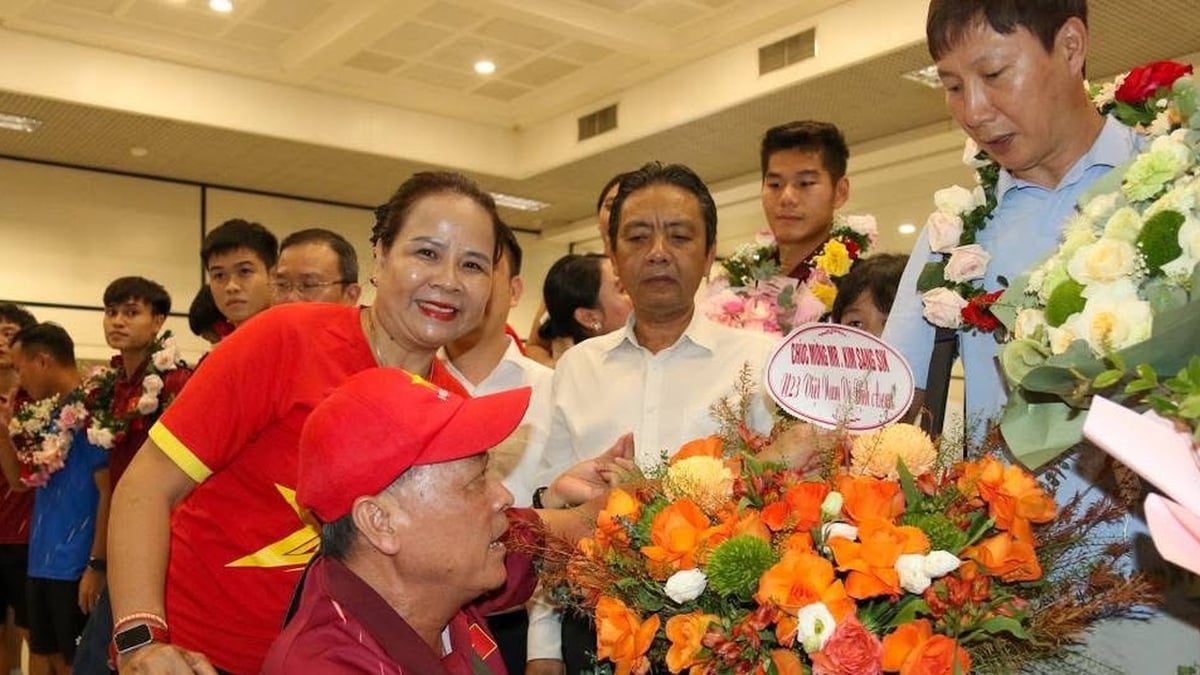
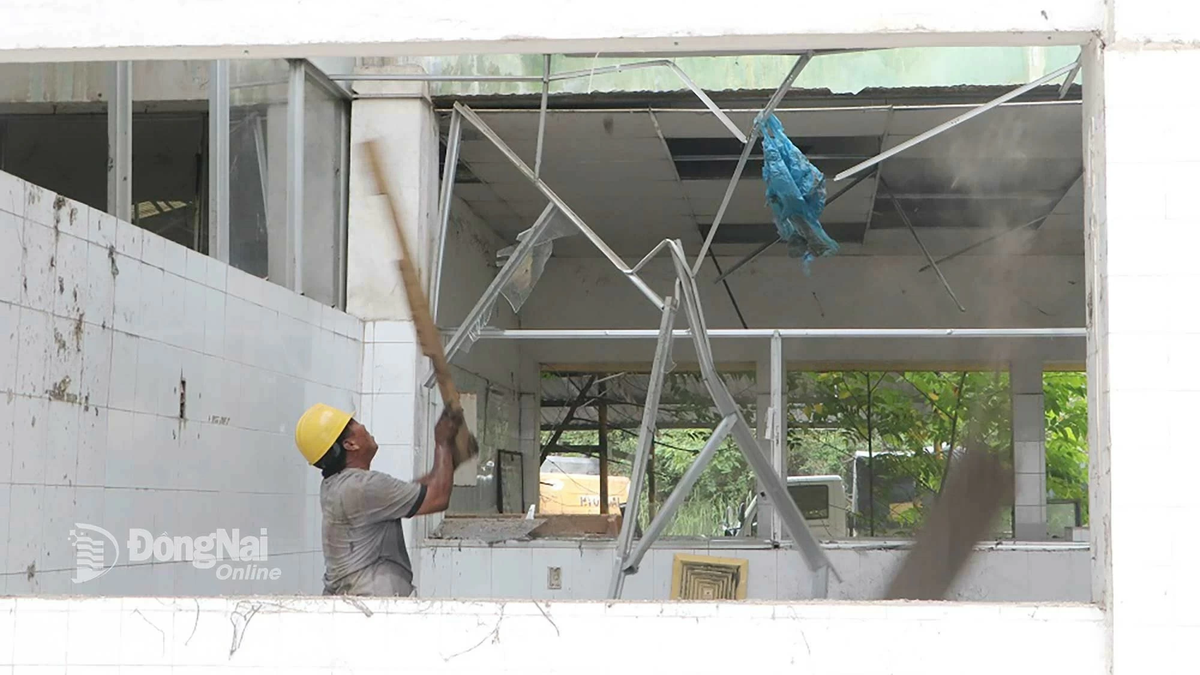

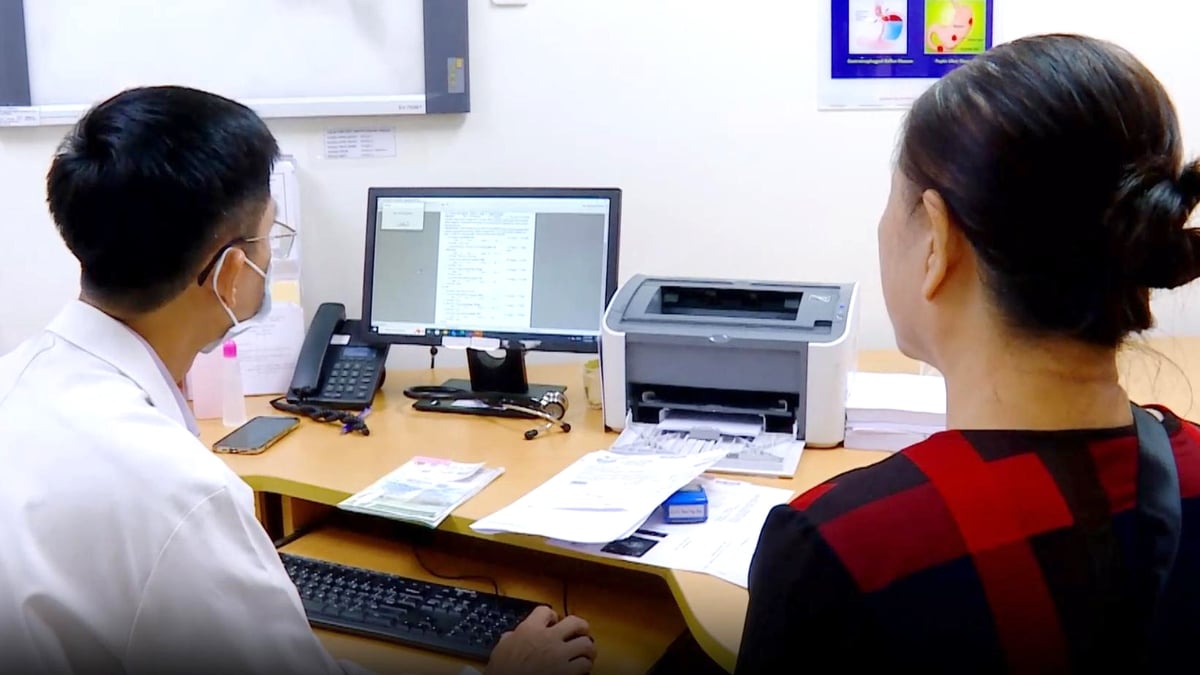
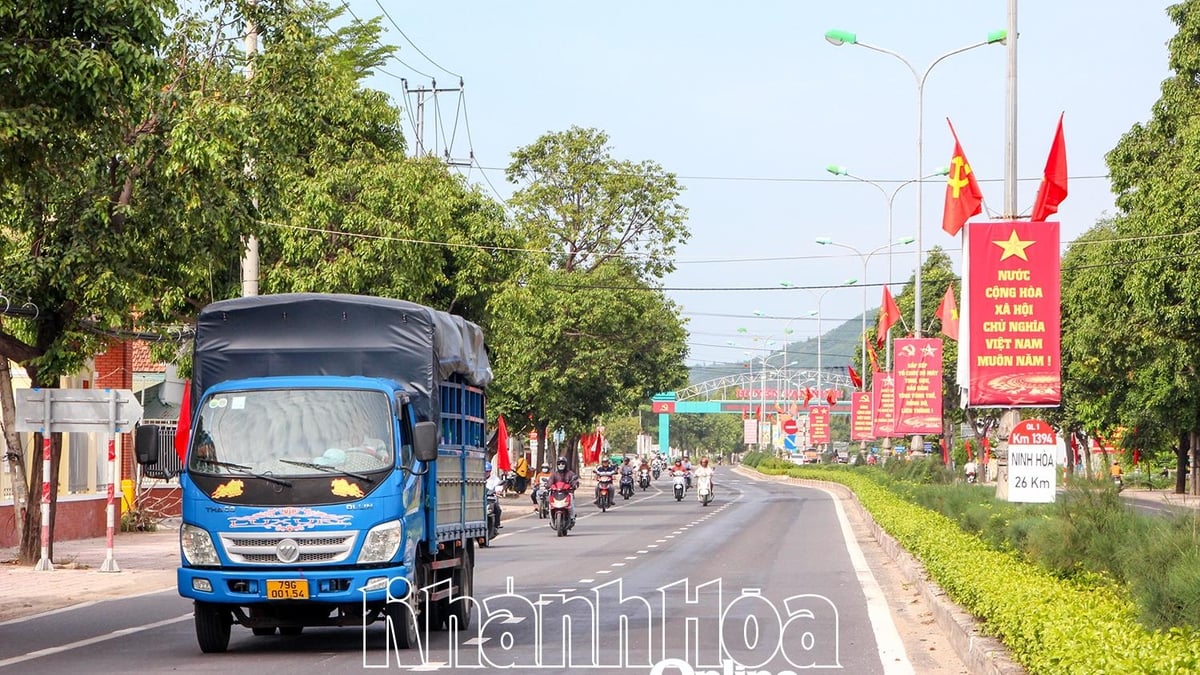
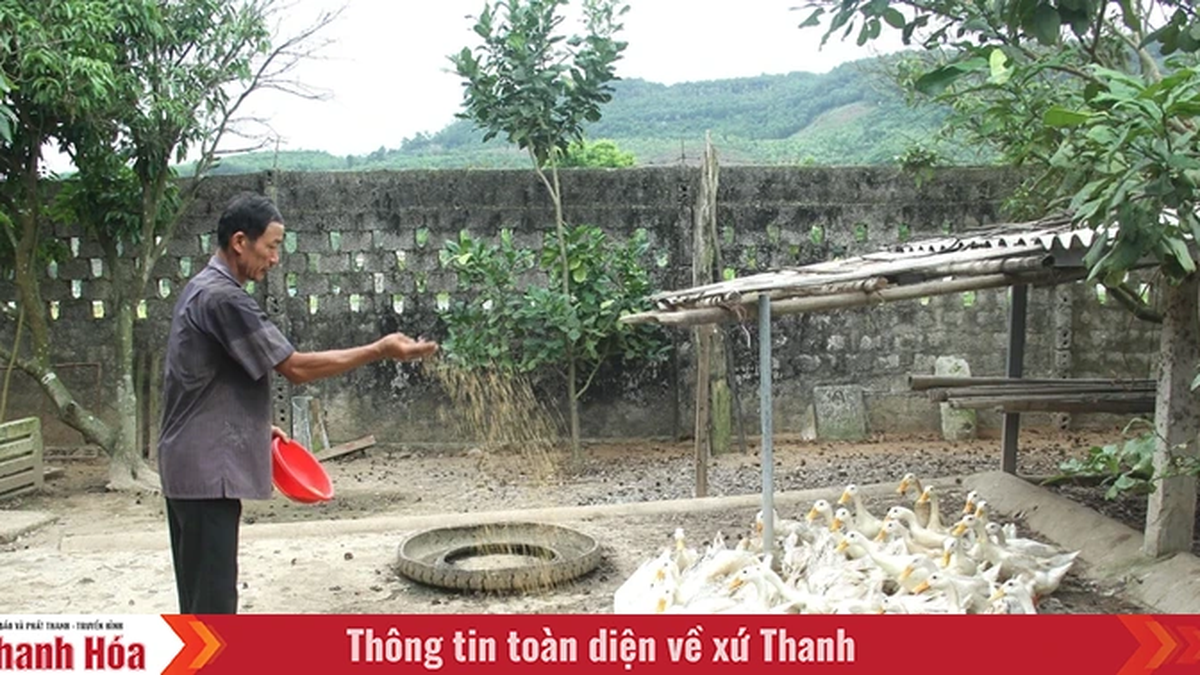












































![[Maritime News] Container shipping faces overcapacity that will last until 2028](https://vphoto.vietnam.vn/thumb/402x226/vietnam/resource/IMAGE/2025/7/30/6d35cbc6b0f643fd97f8aa2e9bc87aea)












































Comment (0)